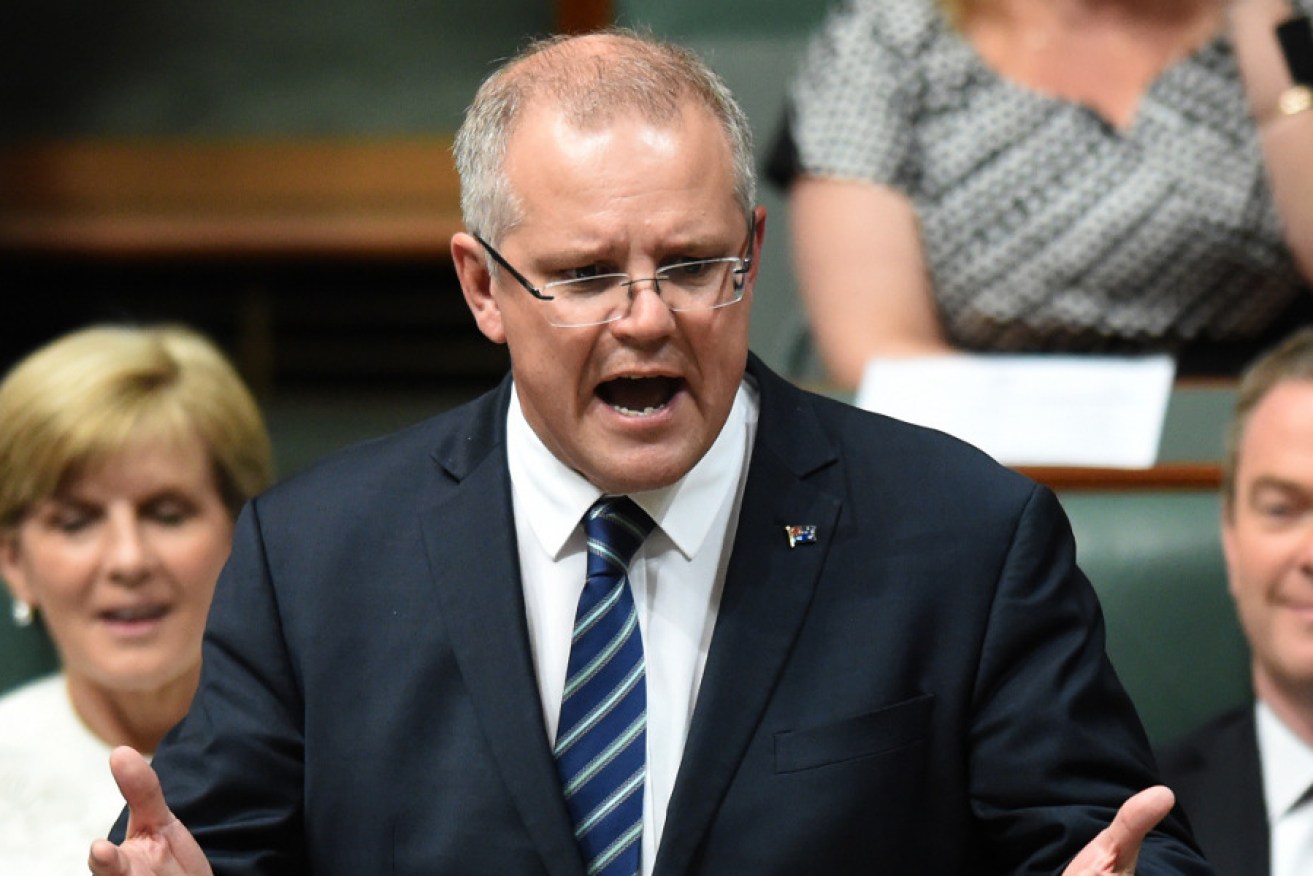Guilty/not guilty: feds want them treated the same


Social Services Minister Scott Morrison wants to strip benefits from people found not guilty due to mental impairment.
Legal, mental health and disability experts are lining up across the country to condemn a little-known Federal Government move to treat people found not guilty of a crime the same as convicted criminals, InDaily can reveal.
Social security payments would be stripped from people found not guilty of a crime due to mental incapacity under a measure in Treasurer Joe Hockey’s mid-year economic and fiscal outlook (MYEFO) which gained little attention when announced in December.
Under current legislation, social security payments are only suspended or cancelled if a person is convicted of a crime or held in remand before trial.
“This will ensure the same social security treatment of people in the criminal justice system whether they reside in a psychiatric or penal institution,” a statement in MYEFO reads.
The South Australian Government says the measure would also cost state taxpayers around $1 million per year in additional expenses, because much of a patients’ social security benefit goes towards an accommodation charge for state-run mental health institutions.
It will save the Federal Government nearly $30 million overall.
Peter McGee of the Intellectual Disability Rights Service told InDaily withdrawing the payment from patients may lead to indefinite detention for people with intellectual disabilities, because courts would unlikely release them into the community without stable housing.
“Access to the Disability Support Pension allows people to plan a way out of detention and back into the community,” he said.
“It allows people the financial option to be able to pay rent. This is the pathway that is needed so that you can leave.”
Senior mental health experts say the change risks forcing people into homelessness and hunger after successful treatment in closed mental health wards.
“Forensic patients are those patients who have been found not guilty of an offence (by reason of mental incapacity),” said Deputy Chair of Royal Australian and New Zealand College of Psychiatrists Dr Paul Furst.
“They require these funds for their life after they’re released from hospital.
“What you would see effectively is people going to court, getting released and having no savings, no money, no things for their home that they require, no fridge, no microwave, none of the things that we need to live a normal life in the community.
“These people … from an ethical point of view should be entitled to their Disability Support Pension.”
President of the Western Australian Association for Mental Health Alison Xamon said that “in practise, this will mean that people will lose their housing for the time that they’re actually detained in the mental health facility, because rent won’t be able to be maintained”.
“Stable housing is actually the principle social determinant that contributes to people being able to stay well.”
President of the Law Society of South Australia Rocco Perrotta told InDaily: “Under the MYEFO measure, it appears that mentally ill people not convicted of a serious offence but confined in a psychiatric facility would be treated the same as convicted criminals with respect to disability payments”.
“Therefore, in these cases there will be no distinction between a person found guilty of a crime and a person found not guilty.
“We would have some concerns if people found not guilty of an offence would be treated the same as those convicted of an offence.
“At a time where the Federal Government has signalled significant cuts to legal aid, we would be worried about the impact of further costs of running services being shifted to the States.
“Increasing the burden on the States, which are already struggling to manage mental health patients and provide funds for other legal services, could be detrimental to some of the most vulnerable people in society.”
SA Health said the changes would “impact on the quality of care for the majority of our forensic patients and increase the burden on the South Australian health system”.
“They will have a detrimental impact on our consumers, as the loss of benefits will make it harder for forensic patients to raise the funds they need to secure a suitable housing option before they transition back to the community,” a spokesperson said.
InDaily has learnt of an internal campaign launched by senior Victorian mental health staff in December, which aims to unite clinicians around the country against the move.
InDaily understands South Australian forensic mental health clinicians will meet and discuss their position on the proposed change this afternoon.
South Australia’s Public Advocate John Brayley wrote to Social Services Minister Scott Morrison last year asking for the measure to be withdrawn.
“These are people who have not been convicted in a court of law, yet these people are being treated in the same way as prisoners who have been convicted,” Brayley told InDaily.
“They are patients, not prisoners; they are not being punished.
“These people are there to receive care.”
Brayley received a response on behalf of Morrison’s office last week.
“This measure will restore the original policy intent that income support payments should not be made to a person who becomes a state responsibility by reason of being confined because they have been charged with a serious offence,” the letter says.
“This measure is not however, intended to prevent people re-establishing themselves back into the community. We are undertaking consultations with state and territory health and justice departments, as well as with advocacy groups, around how this can be best achieved.”
Morrison’s office did not respond to InDaily‘s questions about the policy.




